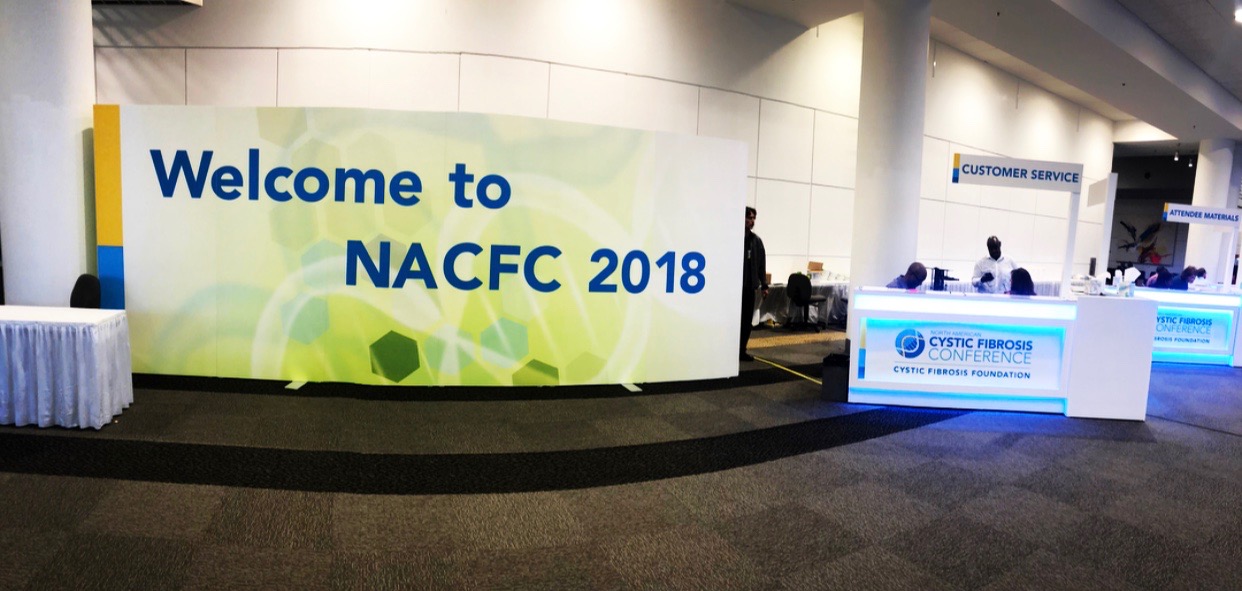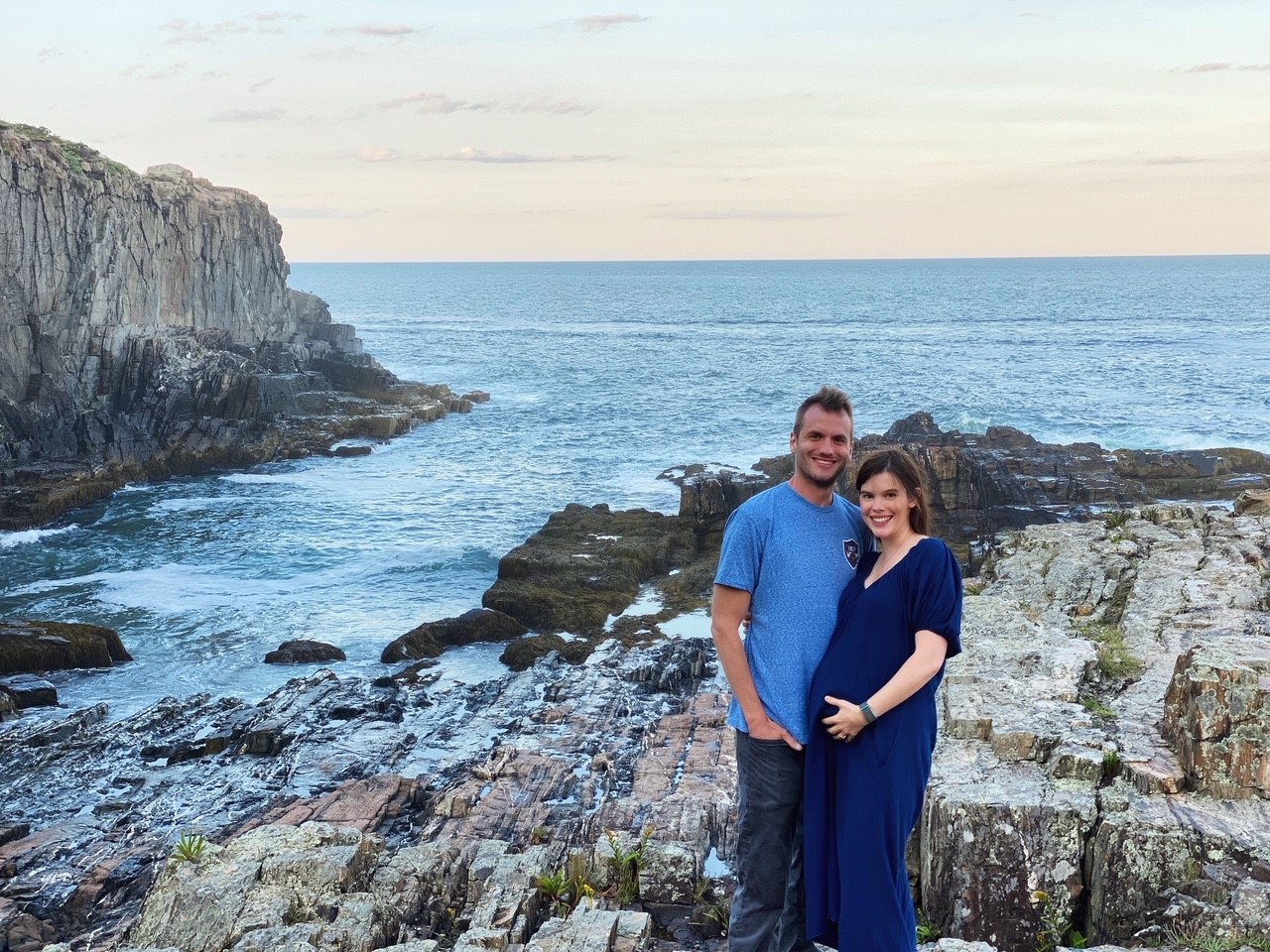I LOVED tuning in to the North American Cystic Fibrosis Conference live stream this past week. It was amazing to be a fly on the wall listening to everything that’s going on in the world of cystic fibrosis, and not just the medical research! Some of the qualitative programs were just as impactful as the science-oriented presentations, for example, Megan Barker’s talk about her organization Project CF Spouse was both inspiring and heartwarming. To that end, Project CF Spouse is proof positive that CFF’s impact grants are driving change in the patient population. Just an amazing thing all around.
I think know my favorite part was the emphasis on chronic infection – shout out to Dara Riva at CFF! The noticeable shift away from modulators was both refreshing and helpful. CFTR protein dysfunction is the root the illness, yes, but it’s not the only part that gives us problems.
CFF has proven time and again that it is capable of CHANGING the world of medicine, and now that they are going to dive into research and development for ways to treat our colonized lungs, I couldn’t help but feel hopeful.
My favorite session on the live stream was Adulting on Saturday afternoon. Not only was that where Megan was talking about Project CF Spouse, but also I thought the discussion about disease disclosure was fascinating. Disease disclosure is what it sounds like, telling someone about your CF, but I loved the way it was presented – as a skill. I’ve never really thought of disease disclosure as a skill, but it makes a lot of sense to me. As we disclose our illness to more and more people throughout the course of our lives, we get better at doing it.
The big reason why I loved Adulting, though, was the hilarious revolt that was happening in the comment section. I wish I took a screen shot because viewers were giving LIVE feedback. Virtual attendees were disappointed that so few presenters had a direct connection to CF, only a session or two focused on the adult side of CF, and for the live streams in general, commenters weren’t happy that the virtual questions were being passed over in Q&A segments. For whatever reason, all of this was expressed in Adulting, the final session of the live stream.
Getting a quick g-tube feed in during #NACFC livestream pic.twitter.com/RMmY74iwgE
— Gunnar Esiason (@G17Esiason) October 20, 2018
Really, I think the frustration from some adults with CF was shining through screen …and that brings me to my next point, I guess we can call it constructive criticism.
I would have loved to see the plenary presentations on chronic infections, inflammation and partnering formatted differently. The vague inclusion of patients in all the plenaries through pre-produced videos felt like they were just checking off a box, “okay here are our patients!”
CFF missed a clear opportunity to better include patients in the plenaries. The plenaries on Infections and Inflammation should have transitioned into discussions after the science was presented. It would have been a thousand times more powerful had they talked with a patient on stage who was struggling with multidrug resistant bacteria. For example, on Breathe In, Lea constantly talks about the need for new antimicrobials because she really struggles with stubborn infections. I would have loved to see Lea on stage talking with the Infectious Disease doctors about her experience with chronic infection, how it alters her life, what she hopes for in the future and what she can expect.
I felt the same way about the inflammation plenary. They context of the talk was figuring out ways to treat other parts of CF in conjunction with the modulators. The science of inflammation in CF is both fascinating and evolving. Why not have a patient tell us in his or her own words what it’s like to live with those problems? They should have had a patient on the stage who is taking a modulator, but also struggling with inflammation and mucociliary clearance. If they really wanted to SHOW what it’s like to live with CF in the age of the CFTR modulators, then they should have shown it and let a patient talk about it on stage through a discussion, rather than quick anecdotes… or invite a patient who isn’t eligible for a modulator to come on stage and talk about that.
I was disappointed with Saturday’s partnering plenary after I had been looking forward to it for so long. It felt like it was an attempt to appease the patient population with a show and tell project, while making us out to be victims inside the clinic.
Yes, we are victims, but it’s not only inside the clinic. We are victims of being pushed to the side and society’s failure to see us as the most viable resource in the healthcare.
If Cystic Fibrosis Foundation wants us to take their co-production plans seriously, then I think they need to understand what co-production in the cystic fibrosis community entails.
Co-production puts everyone on the same level. That means doctors, industry, CFF and everyone else in our lives has to come down to our level and look at us as equals. It’s not just that we’re humans who have lives (that’s a given!) and appreciate eye contact, it’s that we are experts in our field.
Great session this morning at #NACFC re: partnering
Glad that there's some self-awareness on the care provider side of things that improvement is urgently needed.
Couldn't help but feel that there was a prevailing "victim mentality" thrust upon patients, though. Problematic!
— Gunnar Esiason (@G17Esiason) October 20, 2018
I unfortunately think the patient perspective was not given a chance to shine through to the audience in the way that all of us had hoped it would. I’m not criticizing what Melanie said during her anecdote because she addressed her needs within the larger idea that is co-production. I will also say that I was thrilled with the way the session started. It’s fairly apparent Cystic Fibrosis Foundation is very self-aware of their role in co-production and partnering with patients and families. I did, however, feel like it was a curious transition to change gears and all of sudden drop the blame on the clinic. Why?
I think the limited NACFC live stream underscored that notion. How can we dive into co-production and partnership if the organization representing us can’t meet our demand for a virtually robust NACFC? Partnership begins when patients are allowed to play a role.
When I (and others have) asked that question, all I heard was one excuse after another: it’s too expensive, journal publications dictate that nothing is shared on the Internet, no one watches the live stream.
To CFF’s credit, however, they took a step in the right direction. A HUGE step relative to what’s been done in the past, but a baby step as far as co-production as a whole is concerned.
I have seen co-production work. The CF care team at Stony Brook University Medical Center successfully accomplished a co-production session at their CF Family Day. I watched as parents and care providers worked together as equals to improve the pediatric patient experience. No piece of feedback was off the table. There was even a larger understanding that patients and families wouldn’t feel negative repercussions for sharing brutally honest feedback. It was one of the most inspiring things I have ever been a part of.
The brutally honest feedback present at Stony Brook’s Family Day was absent from NACFC.
Why was it absent? Because the session wasn’t a discussion. There was no way in hell Melanie could have been expected to provide that kind of feedback in the time she was given for her prepared remarks. Rather she talked about the things that affect her and her path with CF in the context of the care center.
Had the session turned to a fluid discussion, I’m confident Melanie and her co-hosts could have talked about the things that matter for all of us, because I know that the people who were representing CFF on stage WANT co-production to work for patients in dealing with CFF, care teams, industry and everyone in between.
We all want this to work, it just seemed as if no one wanted to have a tough conversation.
There is a large portion of the patient population that feels under represented when it comes to co-production. There are people who are either being ostracized from their clinics for being empowered patients, pushed to the side in conversations with Cystic Fibrosis Foundations because their goals may not align, and, quite frankly, a significant chunk of patients simply feel left out because their opinions and thoughts are not represented by the microcosm that is CFF advisory committees. Hell, all of this is practically the reason Cystic Fibrosis Learning Network came into existence.
Where was CFLN’s place in the co-production session? They’ve mastered the art of it.
It’s important to remember that our individual experiences with cystic fibrosis are not representative of the community as a whole. We always talk about individualized patient needs, so why not keep it consistent when we talk about partnering? Co-production and partnering means different things to different people, and the sooner we recognize individual patient needs, we can address them. People should not be fearful to stand up and speak out about what they need and how they need it. If a patient needs something, it’s probably a pretty good indicator of something that needs to be looked at.
Ultimately, I really enjoyed NACFC this year. I learned more than I can capture in a single blog post, and I’m already looking forward to next year, while working with CFF to improve the patient experience.





